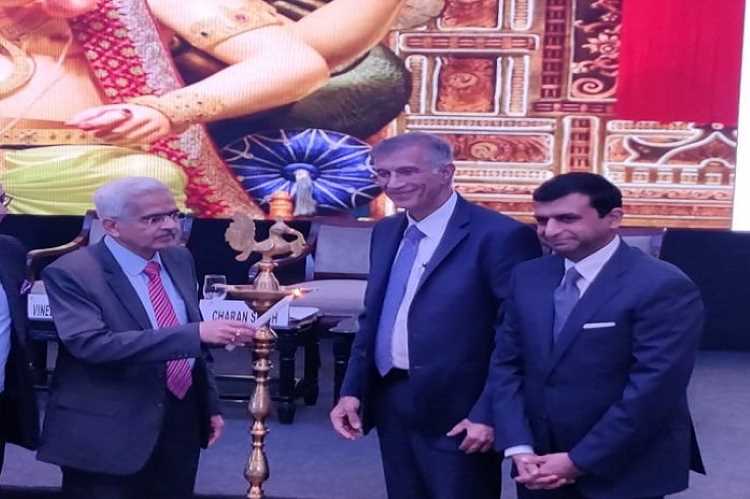RBI Governor Shaktikanta Das delivered a very interesting speech on Micro, Small and Medium Enterprises (MSMEs) on Saturday while inaugurating an ASSOCHAM Event in Mumbai. He provided statistics to establish that MSMEs are playing an important role in production, exports and employment. The estimated employment provided by MSMEs is 11 crore and almost half of the MSMEs operate in rural areas. Thus, as Governor argued that MSMEs foster employment and entrepreneurship. Therefore, in a young demographic country like India, role of MSMEs can never be overemphasised. The RBI has been playing an important role in financing MSMEs, and Governor mentioned about the recent initiatives undertaken in the last Monetary Policy announced on February 6, 2020 like extending one-time restructuring, and continuing on-lending.
The challenges that MSMEs continue to face are immense like financing requirements, input and output markets, issues related to labour laws and human resources, knowledge of accounting practices and tax laws, and cost of maintaining books of accounts. While efforts are being made by both the government and the RBI, MSMEs continue to rue about their challenges. And, to achieve the $5 trillion economy, the role of MSMEs is bound to increase in production and employment.
READ: Coronavirus outbreak may trigger $1.3 trillion losses
It is well known that to grow, any economy would need capital and labour. Labour is abundant in our country and that has to be effectively utilized to increase production. But capital is scarce. For most MSMEs, banks and NBFCs are the main source of funding. Interestingly, despite the PM, and FM goading the bankers, credit expansion is benign and MSMEs seem finance-starved. So, something more has to be done to increase funding. The Governor, since taking over the reins of the RBI in December 2018 has brought much needed stability in the relationship between the monetary and fiscal authorities. It is very important for investment and business climate, to have a conducive and harmonious relationship between two economic pillars. Also, the Governor has taken another bold step in undertaking the review of Inflation Targeting.
Many domestic economists felt that in current times, focus on multiple indicators would be more helpful than only blinkered view on Inflation Targeting. The exclusive focus on Inflation Targeting would lead to higher real rate of interest which is detrimental to investment and growth. One the review is done, and hopefully, growth, employment and other factors will find place in the policy matrix, then interest rates can be expected to maintain a lower trajectory.
READ: Indian economy: The spectre of coronavirus looming large
In this context, continuing the argument, can the sectoral relaxation to MSMEs make a difference? Probably No. First, because MSMEs produce more than 6,000 items and have extensive interlinkages, forward and backward with other sectors. Second, if the overall growth is low, and investment uncertain, then MSMEs cannot flourish, as an island in turbulent ocean. Therefore, to unleash the capacity of credit expansion by commercial banks, may be an independent review of application of Basel Norms to India, and their applicability to all banks in India, or few banks with international presence. The objective has to be that banks should become comfortable in lending to industry, including MSMEs and may be to NBFCs through co-originating. And that banks should not be feeling strangulated with risk weights before any loan decision.
The need for research in the issues challenging MSMEs is really large. In my research, in Peenya, Bangalore published in ADBI, we found even lack of financial literacy about schemes being announced by commercial banks, leave aside availing loans. So, the problem is on DD side too, mainly because of lack of awareness. Therefore, RBI can consider, creating and funding institutions to train officials to extend loans to MSMEs as it did earlier in 1969 while establishing College for Agriculture Banking, Pune. Further, RBI established IGIDR, Mumbai in 1986 for Developmental Research and has 17 liberally funded RBI Chairs in esteemed universities of the country. It may be helpful if the RBI can fund and direct research for MSMEs or even establish, on the lines of IGIDR, a research institution dedicated exclusively to MSMEs in India?
READ: Cutting food waste, vegetarianism can slow down global warming: Study
Finally, it needs to be recognized that public sector banks (PSBs) are the mainstay of banking in India, and are of last resort. Is it possible to have a new set of comparative parameters for PSBs, taking into account their costs in meeting social commitments, like financing MSMEs and factoring these while evaluating financial performance of public and private sector banks? Once the issue of negativity and stigmatic image in commercial performance of PSBs is addressed, and their role showcased appropriately, that may encourage PSBs to take more risk and lend to MSMEs/NBFCs.
To conclude, central banks are playing an important role in encouraging and sustaining growth. And the RBI, as it did in the sixties and seventies for agriculture sector can help with MSMEs now. In fact, the RBI can provide bold and innovative leadership in MSME funding that will boost growth and employment in the country – the right recipe for teeming millions.

